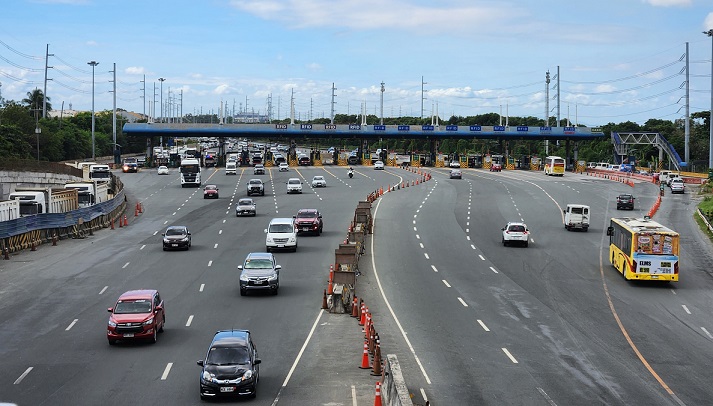Operational Responsibilities
Operation & Maintenance: The current responsibility for the Operations & Maintenance (O&M) of the Cavitex project lies with PEATC, as per the Joint Venture Agreement (JVA). The 485 regular employees and contract personnel involved in O&M are considered employees of PEATC. Any operational issues or complaints related to Cavitex operations should be directed to PEATC.
Design, Finance, and Construction: CIC's role primarily revolves around design, finance, and construction aspects of the MCTEP project. This project encompasses various sections such as R1, R1 Extensions, and Cavitex-C5, totaling approximately 23.8 kilometers.
Operation & Maintenance: The current responsibility for the Operations & Maintenance (O&M) of the Cavitex project lies with PEATC, as per the Joint Venture Agreement (JVA). The 485 regular employees and contract personnel involved in O&M are considered employees of PEATC. Any operational issues or complaints related to Cavitex operations should be directed to PEATC.
Design, Finance, and Construction: CIC's role primarily revolves around design, finance, and construction aspects of the MCTEP project. This project encompasses various sections such as R1, R1 Extensions, and Cavitex-C5, totaling approximately 23.8 kilometers.
Cavitex-C5 Link and Traffic Decongestion
Cavitex-C5 Link: One of the ongoing components of the MCTEP project is the Cavitex-C5 Link, which spans across Parañaque, Pasay, and Taguig. This link is projected to accommodate around 50,000 vehicles daily, contributing significantly to alleviating traffic congestion in key areas like Roxas Blvd., Manila International Airport (MIA), and EDSA.
Cavitex-C5 Link: One of the ongoing components of the MCTEP project is the Cavitex-C5 Link, which spans across Parañaque, Pasay, and Taguig. This link is projected to accommodate around 50,000 vehicles daily, contributing significantly to alleviating traffic congestion in key areas like Roxas Blvd., Manila International Airport (MIA), and EDSA.
Legal Perspectives on the Mandamus Petition
Authority and Board Approval: The statement highlights a crucial legal point regarding the Mandamus petition filed by PEATC OIC Esteban. It asserts that Esteban lacks the authority to file such a case without proper approval from the PEATC Board, which is currently not in place due to governance concerns. The parties directly involved in the agreement are Philippine Reclamation Authority (PRA), CIC, and Toll Regulatory Board (TRB). The filing of the Mandamus petition without board approval is viewed as a breach of protocol and a deliberate attempt to mislead stakeholders.
Dispute Resolution Mechanism: The statement emphasizes that MPTC and CIC have been responsive to requests for information within the framework of the Joint Venture Agreement. However, certain reports required by the Commission on Audit (COA) have not been provided by PEATC since 2007. The JVA includes a dispute resolution mechanism, which the parties have offered to PEATC and PRA to address concerns effectively.
Authority and Board Approval: The statement highlights a crucial legal point regarding the Mandamus petition filed by PEATC OIC Esteban. It asserts that Esteban lacks the authority to file such a case without proper approval from the PEATC Board, which is currently not in place due to governance concerns. The parties directly involved in the agreement are Philippine Reclamation Authority (PRA), CIC, and Toll Regulatory Board (TRB). The filing of the Mandamus petition without board approval is viewed as a breach of protocol and a deliberate attempt to mislead stakeholders.
Dispute Resolution Mechanism: The statement emphasizes that MPTC and CIC have been responsive to requests for information within the framework of the Joint Venture Agreement. However, certain reports required by the Commission on Audit (COA) have not been provided by PEATC since 2007. The JVA includes a dispute resolution mechanism, which the parties have offered to PEATC and PRA to address concerns effectively.
Legal Action and Advice: Based on legal advice, MPTC and CIC believe that the Mandamus petition should be dismissed outright by the Court of Appeals. They cite issues such as defective verification and certification, lack of proper authority from the PEATC or PRA Board, and absence of approval from the Office of the Government Corporate Counsel (OGCC). These deficiencies in the filing process are considered fundamental and invalidate the petition's legal standing.
MPTC and CIC assert their adherence to legal protocols and emphasize the need for proper authorization and compliance with agreements in any legal action. The statement underscores their commitment to addressing operational issues within the framework of established agreements and legal procedures.
MPTC and CIC assert their adherence to legal protocols and emphasize the need for proper authorization and compliance with agreements in any legal action. The statement underscores their commitment to addressing operational issues within the framework of established agreements and legal procedures.







0 Comments